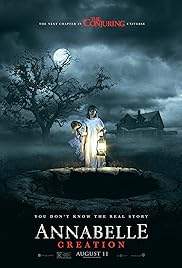So why do people stuff false information into their c.v.’s and lie at interviews ? It all seems somewhat pointless, considering the kind of networking that’s possible these days, and also considering that background checks can be discreetly done at a relatively low cost. The system works a little slower than Pinocchio’s nose to expose creative c.v.-building, but it still does work.
Consider the case of the IIM Kolkata MBA who joined an MNC as a Regional Sales Head. Intelligent, affable, personable, he made an excellent first impression and settled down to his job really well. Until a young, alert HR Executive noticed that his IIM certificate seemed to look a different from the others in the personnel files. A couple of verification calls later, the RSH was out on his ear and the MNC was back to advertising the vacancy.
Then there was the case of the retired Air Force Officer who joined a prestigious club as its President, propped up a dandy little model Mig-21 on his desk and spent the time that he wasn’t discharging his duties narrating stories of his air force days to a fascinated audience. Until a new club member discovered that the revered President had, in fact, been of a very junior rank and the Mig-21 was probably a toy his son used to play with.
These are, of course, frauds. But there are the little white lies as well: “Have you made this cv yourself ?” “Yes, sir, I have” (and unsaid: “with a lot of help from naukri.com”). “Why do you want to leave this job ?” – “For better prospects” (and unsaid: “they shouldn’t have brought in someone over my head”). Unnecessary.
Bottomline: Don’t lie in your c.v. Don’t falsify facts. Don’t stretch the truth. Keep your creativity for the job, not the interview. It’s good to be optimistic and expect that you won’t get caught; but on the off-chance that you do, stop to consider the fact that nobody really likes a liar, and more importantly, nobody trusts one either. Even if you don’t actually get caught out in a falsehood, you could create a large enough gap between the matter in your c.v. and the persona that you’re presenting vis-à-vis, to leave behind a doubt as to your bonafides. If you haven’t given any BS in your profile, your interview is going to sound exactly like your bio-data reads: so your integrity and reputation are intact - even if you don’t actually get the job.
 It's not just dead horses that lend themselves to flogging - it can be done with ghosts as well, and this movie proves that.
It's not just dead horses that lend themselves to flogging - it can be done with ghosts as well, and this movie proves that.


